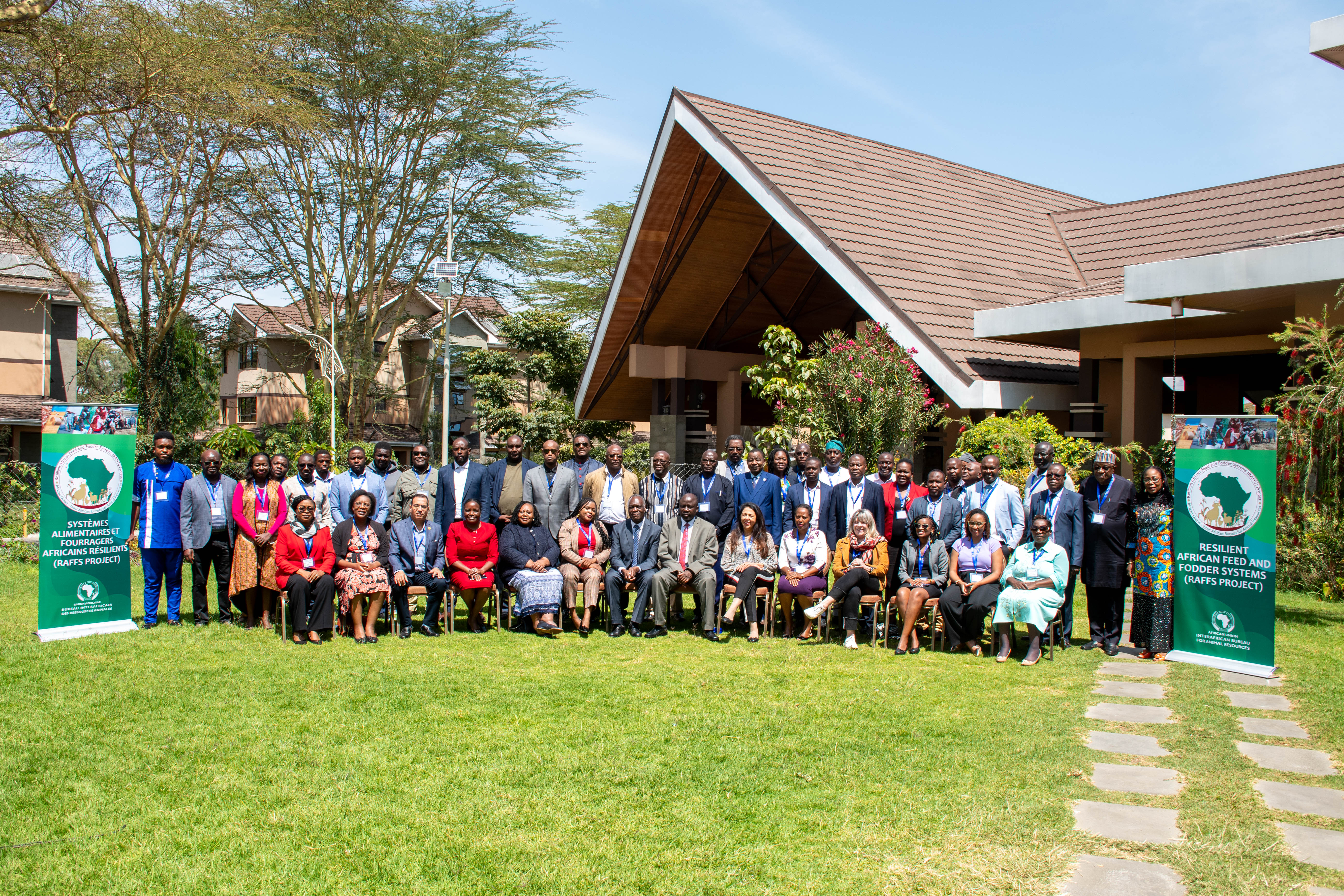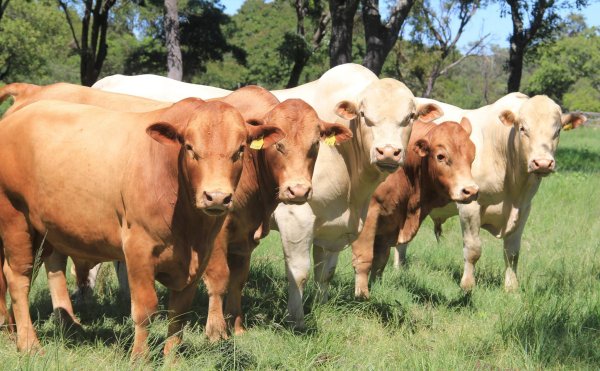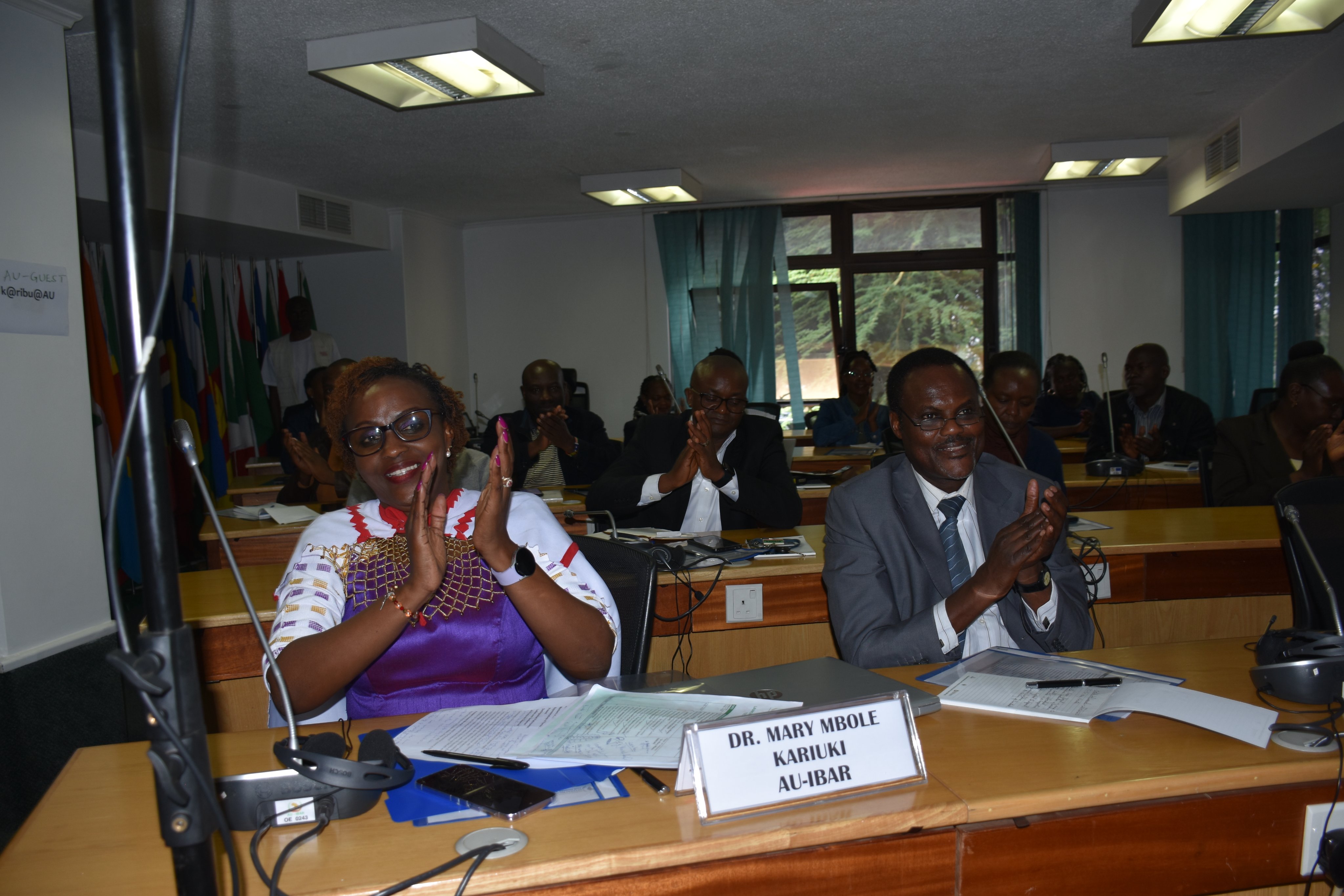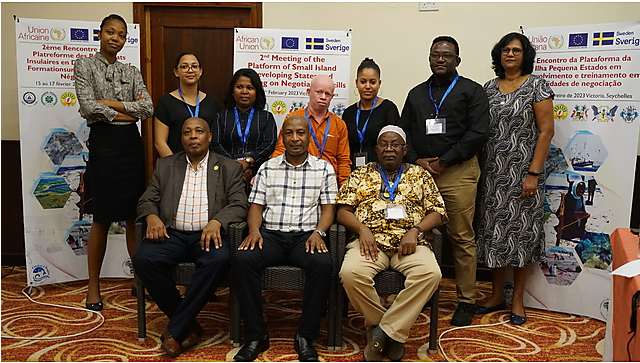Against all odds, women are defying convention and spearheading a groundbreaking revolution in the feed and fodder sector- which has for long been male dominated.
With tenacity and innovation, a group of women from across Africa are breathing new life into the feed and fodder sector as well as livestock production and reshaping the course of their communities’ and countries’ economic future.
The sector is currently facing a major crisis due to the ongoing Russia-Ukraine war, global COVID-19 pandemic and climate change.
In the shadows of these challenges and adversities, some women are emerging as catalysts of change in the crucial feed and fodder sector.
Some of the women playing a crucial role in the sector are at the ongoing African Union-InterAfrican Bureau for Animal Resources (AU-IBAR) workshop in Kenya- where a high-level discussion on how to cushion member states and empower women is ongoing.
https://www.capitalfm.co.ke/news/2023/07/pioneering-african-women-in-feed-and-fodder-sector-ignites-a-trailblazing-path-for-others/
View Full Post and Comments

The African Union-InterAfrican Bureau for Animal Resources (AU-IBAR) and the Bill & Melinda Gates Foundation have organised a workshop for the Resilient African Feed and Fodder Systems (RAFFS) Project. Access Press Release.
View Full Post and Comments
The Southern African Development Community (SADC) is the first region in Africa to successfully develop a harmonized Regional Grading and Classification System for its red meat and live animal value chain. “If you have a regional scale that can be used to classify for instance, grade A of exotic, and grade A of indigenous breed, the prices will not be very diverse,” says Dr. Mary Mbole-Kariuki.
Mr. Oppong-Otoo, who coordinates the Standards and Trade Secretariat for Animal Health and Food Safety at AU-IBAR stresses that international standards ought to be developed with the institutional capacity needs and priorities of Africa in mind. This enables African countries to implement the Standards and participate effectively in international trade. "The philosophy is simple; If a country is actively involved in the development of standards, it becomes easier to implement them," states Oppong-Otoo.
Dr. Mbole-Kariuki, who leads technology innovation and skills development at Live2Africa agrees, adding that, “When we talk of African Free Trade, it is because some things are not equal, they are not harmonized.”
The livestock Sector is critical for Africa's goal to eradicate hunger and malnutrition, and improve intra- and inter-continental trade. The State of Food Security and Nutrition in the World 2022 by FAO, IFAD, UNICEF, WFP and WHO indicates that 278 million people in Africa suffer from chronic hunger. The high protein content of animals is critical for African countries to meet their nutritional needs. To optimize its potential, Africa has to invest in standardization of the livestock sector, and build the capacities of African nations to comply with the standards. “Standards are the currency for trade,” asserts John Oppong-Otoo, a food safety expert at AU-IBAR.
Continue Reading
"Livestock Development Strategy (LiDeSa) has been our lighthouse, guiding the livestock sector into better actions, and Live2Africa project the vehicle, that drove systematic capacity across member states and regional organizations,” explains Dr. Mary Mbole-Kariuki, Technology, Innovation and Skill development Expert, for the AU-IBAR, Live2Africa Project, noting that there has been systematic capacity-building on the value chain system across AU Member States and regional organizations. “We set out to increase technical and infrastructural capacities, and developed capacities on the use of data for evidence-based policies, involving stakeholders and key actors in value addition processes pertaining to livestock value chains,” she adds.

Continue Reading
“We are no longer spectators,” quips John Oppong-Otoo, a Food Safety Expert at the African Union – Inter-African Bureau for Animal Resources (AU-IBAR). He is also the technical lead responsible for implementing one of the seven project result areas at the Live2Africa Project. “Africa can now speak with one voice,” he asserts, citing the Project’s ability to influence political participation of Member States on animal health matters, as one of its most significant achievements.
According to Oppong-Otoo, the Agreement on the application of Sanitary and Phytosanitary Measures provides that countries must work together to align their respective measures on animal diseases, yet there were many instances where international standards were developed without taking into account the institutional capacity needs of Africa. Member States of the Africa Union are signatory to the World Trade Organization(WTO), which enforces the Agreement.
“Our collective voice is stronger, and we now have a seat at the global table, improving the quality of Africa’s participation in the work of international standard setting organizations,” he remarks. The gains have been hard won. As Project lead, Oppong-Otoo coordinated Member States, by organizing meetings to solicit their inputs and comments. This culminated in an African position which was presented at the International Negotiation Forum.
Continue Reading
“We were successful in harnessing technology to drive the agenda of quality seed,” says an elated Dr. Mary Mbole-Kariuki, a Livestock Geneticist. Passionate about using animal genetics for rural development, she coordinated technology innovation and skills development for the Live2Africa Project. “When we began the project, I remember making a presentation and showing a small circle and saying that the small cog is the technology wheel that will move all other results,” she adds.

Continue Reading
Wilson Kipeno, a 46-year-old livestock farmer, and community leader in Kenya’s Transmara South, Narok County, used to travel 305 kilometres by road to the Kenya Agricultural and Livestock Research Organization (KALRO) offices in Naivasha, Nakuru County, to secure the best breeds of bulls for his herd. Each trip cost him some hundreds of thousands of shillings - about KES 150,000 for the bull, to transport it back home, accommodation and other indirect expenses while in Naivasha. It was an expensive and daunting affair!
%20(1).jpg)
Continue Reading

African Union-Inter African Bureau for Animal Resources (AU-IBAR) in collaboration with African Union Development Agency (AUDA-NEPAD) through the EU-funded phase two of the Fisheries Governance Project (Fish Gov 2) and SIDA-funded Conserving Aquatic Biodiversity Project organised a 2nd meeting of a platform of Small Island Developing States (SIDS) and training workshop on negotiation skills.
Continue Reading
There has been an acknowledged need for capacity building of African Union Member States as an accepted development theory in decision-making and participation in International Ocean negotiations. AU-IBAR and AUDA-NEPAD jointly organised the second meeting of the Small Island Developing States (SIDS) Platform and training in negotiating skills in Seychelles from 15 to 17 February, 2023 in response to the need for improved negotiating skills and participant recommendations from the last SIDS meeting held in August, 2022.
The absence of active engagement in International Ocean negotiations by African Nations is indicative of the skills gap in negotiation. Some Countries have failed to approve or execute International Instruments. The capacity of Governments to implement important International Agreements and Africa's voice must be reinforced. The consolidation of collaboration and coordination mechanisms, effective participation, and articulation of a unified African voice in Global fora such as climate change and Ocean governance require improvement.
Continue Reading
AU-IBAR (the African Union Inter-African Bureau for Animal Resources) is currently implementing the second phase of the Fisheries Governance Project (FishGov2) which aims to enhance the contribution of its member states towards sustainable fisheries and aquaculture in order to achieve its objectives set out in the AU Agenda 2063. The projects are funded by the European Union (EU) and the Swedish International Development Cooperation Agency (SIDA) respectively.
Some of the specific objectives of the project is to ensure that Africa represented and effectively participates in international fisheries and aquaculture fora.
In order to achieve that, AU Member States, including SIDS (Small Island Developing States), must have the capacity to negotiate on international level and there needs to be a mechanism in place to coordinate African common positions with several activities including:
· The identification of specific needs of African SIDS and Madagascar and that these are into account in international fora and
· The enhancement of capacities on international issues and organization of specific training for pre-identified negotiators.
Hence, the AU-IBAR is organizing the 2nd Meeting of the African SIDS Platform and Workshop from the 15th February 2023 to the 17th February 2023 in Seychelles.
Additionally, the workshop seeks to consolidate the outcomes and recommendations of the first meeting that happened in August 2022 and to chart the way forward for strategic positions to ensure increased contribution to food and nutritional security, poverty alleviation and economic growth consistent with the Malabo Declaration that called for action on transformation of African agriculture by 2025.
Other specific objectives of the workshop includes:
In the above regards the FishGov2 and Biodiversity Projects with funding from EU and SIDA will co-organize the meeting in Seychelles with the following key objectives to:
· Consolidate the outcomes and recommendations of the first meeting of the AU-SIDS Platform and chart the way forward for strategic positions;
· Enhance the capacities of AU-SIDS and other pre-identified negotiators - in terms of international negotiations;
· Formulate a mechanism to coordinate African common positions and enhanced African voice at Global Fora for fisheries, aquaculture, aquatic biodiversity, environmental sustainability and climate change related regimes;
· Enrich and validate the final report of the consultancy on Identification of specific issues relevant to Small Island Developing States (SIDS) and draft strategic positions and recommendations for the establishment/strengthening a platform of Small Island Developing States (SIDS);
· Enhance awareness and build capacity among stakeholders on the importance of the various regimes, relevant provisions, challenges and mechanisms for effective role and participation in global regimes;
Estimated 35 invited participants to the Workshop would comprise of delegates representing Seychelles, Mauritius, Comoros, Cape Verde, and Sao Tome & Principe including Madagascar; Southern African Development Community (SADC); Regional Projects in Fisheries, Aquaculture and Blue Economy; Regional Sea Conventions (RSAs); African Union Centres of Excellence in Fisheries and Aquaculture (AU-COEs); Experts (Trainees and Trainers); AU-IBAR Consultants; Development Partners and relevant staff from the AU-IBAR.
View Full Post and Comments






%20(1).jpg)
